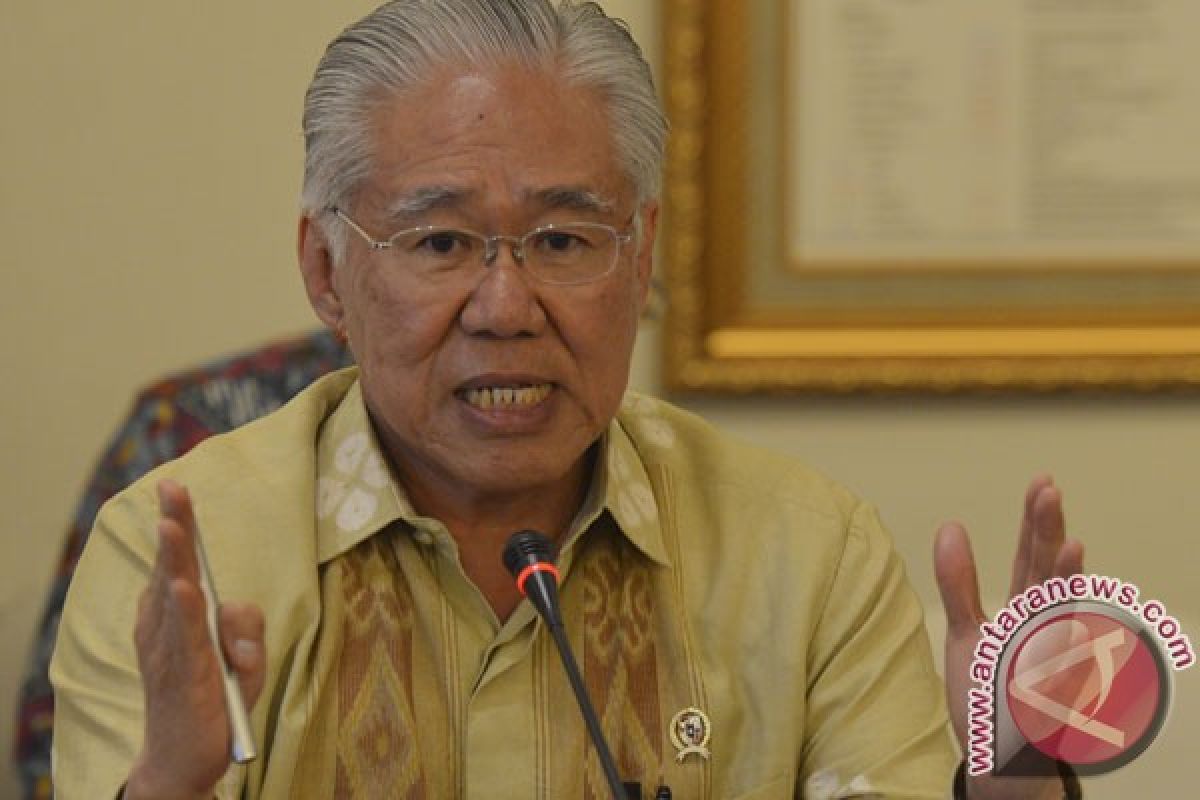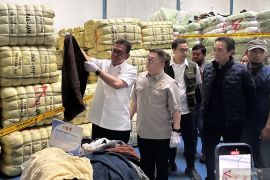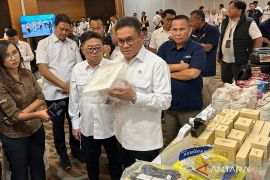I guarantee that beef stock is adequately available."Jakarta (ANTARA News) - Trade Minister Enggartiasto Lukita conducted an observational tour of several markets in Jakarta to check the prices of basic necessities and to ensure their proper distribution to consumers, Thursday.
The minister, among others, visited the Koja Baru Market in North Jakarta, the Rawamangun Market in East Jakarta and the Jatinegara Market in East Jakarta.
Based on his direct observation, the minister found that there was no disturbance in the stock distribution, while the prices were stable.
"I guarantee that beef stock is adequately available. There is a ready stock of frozen meat with a maximum price of Rp80,000 per kilogram(kg). There is also fresh meat," Lukita remarked.
The government has guaranteed meat supplies for domestic consumption which will be adequate to meet the needs up to the post-fasting month of Eid al-Fitr, or Lebaran festivities next June, he said.
The government has implemented several schemes to ensure adequate stocks such as importing frozen beef, apart from importing cows and breeding heifers at home, Lukita revealed.
Even now, the price of meat in the country is not yet in line with the desire of the government. The government provides options for consumers in the form of frozen meat with a price of Rp80,000 per kilogram.
Based on the Basic Necessity Market Monitoring System (SP2KP) of the Trade Ministry, the average national price of beef is recorded at Rp112,000 per kg. The price of the commodity has been fluctuating over the past few weeks
For other commodities, such as crystal white sugar, the government has secured an agreement with traders that they would set the highest retail price of sugar at Rp12,500 per kg in February 2017, Lukita added.
The government is holding talks with various business makers to bring the prices of commodities, particularly essential commodities, under control.
The minister also inspected the prices and stocks of other necessities such as chili and rice. For red cayenne pepper, the government organised market intervention through its state-owned logistics board Bulog to sell the commodity at Rp65,000 per kg.
"Bulog and the Indonesian Trading Company (PPI) have been supplying the basic necessities to the consumers by conducting market interventions. The commodity is distributed from the regions which have adequate supplies to areas which have shortage of the commodity," the minister explained.
Since its assignment by the trade ministry, the PPI has distributed some five tons of cayenne pepper from South Sulawesi to other the regions, which face shortage of supplies, such as the provinces in Kalimantan, Java and Bali.
Secretary of Horticulture Directorate General of the Agriculture Ministry Yasid Taufik said, so far, there had been no problem with chili production, notably red cayenne pepper. The increase in the price of this commodity has been caused by the inefficient distribution supply to the wholesale market.
"For example, supplies at the Kramat Jati Wholesale Market in East Jakarta which in normal conditions are about 70-100 tons per day, dropped to 35 tons per day. But the decline was not caused by production problems," he noted.
Taufik said that high rainfall had not affected production. The agriculture ministry claimed that the red cayenne pepper price anomalies happened only in consumer markets.
At the farmers level, the price of red cayenne pepper is only about Rp40,000-Rp45,000 per kg.
"Price anomalies in the consumer markets occur because it is not under control," Taufik pointed out.
Data at the ministry of agriculture indicated that the average production of red chili reached 1.29 tons, while the needs reached 900 thousand tons per annum. For cayenne pepper, production is recorded at 950 thousand tons and are said to be surplus.
(Uu.A014/INE/KR-BSR/H-YH)
Editor: Priyambodo RH
Copyright © ANTARA 2017












